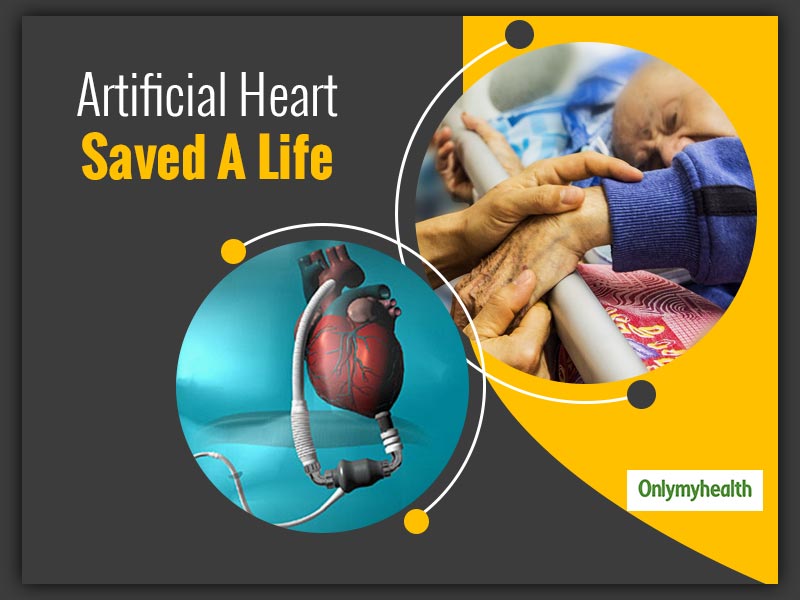
When a person has received treatment for a chronic heart ailment but it no longer works, he/she may lead to end-stage heart failure. This is exactly what happened with A 58-year-old Jaipur resident who underwent surgery for the installation of a mechanical heart pump after he suffered a heart attack. However, things didn’t go as planned and he developed complications. To know what caused him end-stage heart failure and how he was revived, keep reading.
Table of Content:-
What causes end-stage heart failure?
There are many diseases that can affect the heart’s pumping efficiency leading to heart failure. The most common causes of this condition are:
- Underlying heart condition
- Hypertension or high BP
- Coronary artery disease
- Heart valve disorders
- Longstanding alcohol abuse
- Complication after myocarditis
- Thyroid disorders
- Vital infections that caused heart muscles to stiffen
- Heart rhythm abnormalities
- Diabetes can also cause congestive heart failure

How An Artificial Heart Saved A 58 YO Man’s Life?
58-year-old Jaipur patient suffering from end-stage heart failure was successfully revived to life after developing postcardiotomy shock at Max Hospital, Saket. Patient KC Aggarwal was successfully implanted with Left Ventricular Assist Device (LVAD), a mechanical heart pump. The patient with a history of severe myocardial infarction (heart attack) had already undergone Coronary Artery Bypass Grafting (CABG) at an outside hospital in Jaipur. Unfortunately, after developing a very deadly complication of post cardiotomy shock he was shifted to Max Hospital Saket on mechanical circulatory support.
“The patient was admitted in a very critical condition and was immediately optimized on Veno-Arterial Extracorporeal Membrane Oxygenation Support (V-A ECMO) as his oxygen levels were dangerously low even on maximum ventilatory support. Being closely monitored, his ECMO flows were adjusted according to the need of his body. In order to re-establish his full flows, in view of his borderline hemodynamics, a trial to wean off the ECMO was done after 7 days. With multiple failed attempts to wean off, the team decided to continue the ECMO.” Said Dr. Kewal Krishan, Director- Heart Transplant & Ventricular Assist Devices, Principal Consultant– Cardiac Surgeon, Max Super Speciality Hospital, Saket, New Delhi.

“Since the effect of the severe cardiogenic shock led to the development of end-stage heart failure, the patient was in a dire need of cardiac transplantation. However, due to the non-availability of donor hearts, a decision to implant a left ventricular assist device was made as destination therapy. He underwent the procedure uneventfully wherein the V-A ECMO support was separated and LVAD was implanted. His post-operative stay in the ICU and hospital was along the expected lines for such a critical procedure and he was discharged in a healthy and stable condition.” He added.
Also Read: All You Need To Know About A Heart Transplant From Cardiologist
What Is ECMO?
In some cases, patients with severe heart failure or lung failure do not respond to treatment. Their condition is not manageable with a ventilator and therefore, they are given ECMO. It is a special machine that functions as an artificial heart when the real heart is unable to function or support the body.

What is Left Ventricular Assist Device or LVAD?
Left Ventricular Assist Device (LVAD) is an artificial heart or say, a mechanical pump that is implanted in patients of end-stage heart failure until they receive heart transplantation. LVAD is a battery-operated device that supports the left ventricle of the heart to pump the blood and continue blood circulation without disruption.
Also Read: Eating Broccoli Can Save You From Heart Diseases, Know How To Consume It Rightly

LVAD is a boon for heart failure patients- Dr. Kewal Krishan
“In most of the cases, heart diseases remain undetected at an early age that leads to worsening of heart function ultimately resulting in heart failure. Many patients getting multiple heart attacks and patients of dilated cardiomyopathy are more vulnerable to develop advanced heart failure. In such cases, the only treatment option is to undergo a heart transplant, where 70% of them die waiting for a heart donor. LVAD is a boon for such patients and has saved many lives.”- Dr. Krishan.
This is a strong example of the importance of vigilance and timely treatment. Science and the medical industry have advanced so much that there are various possible treatments for different heart problems. You just need to consult a good doctor and do what he suggests. Take care of your heart.
Read More Articles In Heart Health
How we keep this article up to date:
We work with experts and keep a close eye on the latest in health and wellness. Whenever there is a new research or helpful information, we update our articles with accurate and useful advice.
Current Version